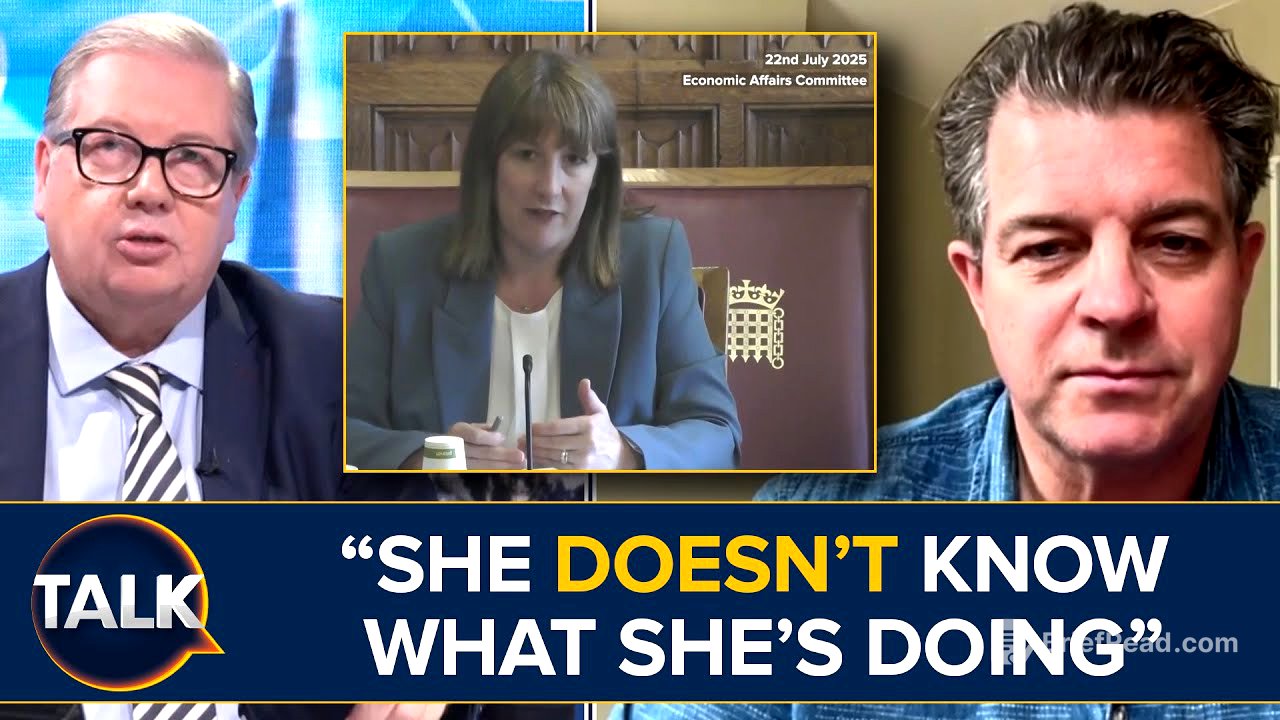TLDR;
Liam Hanigan discusses the dire state of the UK economy, drawing parallels to the 1976 crisis when the IMF had to bail out the country. He criticizes Chancellor Rachel Reeves and Bank of England Governor Andrew Bailey for not grasping the severity of the situation. Hanigan highlights unsustainable borrowing practices, where a significant portion is used to pay interest on existing debt, and points out that the UK's government borrowing costs are higher than other major economies due to investors' lack of confidence. He warns of a potential upward spiral of inflation and borrowing, leading to economic instability, and notes that financial markets are closely scrutinizing the UK's ability to resolve this crisis.
- The UK economy is heading towards a 1976-style crisis, potentially requiring an IMF bailout.
- Current borrowing practices are unsustainable, with a large portion used to cover interest payments.
- UK government borrowing costs are higher than other major economies, indicating a lack of investor confidence.
- Inflation and debt are creating an upward spiral, threatening economic stability.
- Financial markets are closely monitoring the UK's ability to address the crisis.
Introduction [0:00]
Liam Hanigan, a columnist at the Telegraph, is introduced as someone with significant economic expertise. The host references Hanigan's recent article highlighting the concerning economic outlook for the summer.
Oussie Osborne and Black Sabbath [0:14]
Hanigan shares his appreciation for Black Sabbath, particularly the song "Hard Road" from the album "Never Say Die." He explains how the song's uplifting lyrics and guitar riff helped him during difficult times, both as a teenager and recently. He acknowledges Aussie Osborne's talent and significance.
The UK's Looming Fiscal Crisis [1:56]
Hanigan expresses concern about the UK's current economic trajectory, drawing parallels to the 2008 crisis and the situation in 1976 when the IMF bailed out the country. He criticizes Chancellor Rachel Reeves and Bank of England Governor Andrew Bailey for not recognizing the severity of the situation. He points to recent borrowing figures, where the UK government borrowed 21 billion pounds in June, with 17 billion pounds used to pay interest on previous debt, describing this as a Ponzi scheme.
Economic Imbalances and Unsustainable Practices [4:41]
Hanigan notes that while the UK has many entrepreneurs and hardworking individuals, there are too many people receiving benefits who could work, and too many people employed in unproductive public sector jobs. He points out that government borrowing costs are higher in the UK compared to other major economies, making the UK an outlier. A significant portion of the government debt is linked to inflation, causing debt service bills to increase as inflation rises, creating an upward spiral of interest costs and borrowing, and a downward spiral in economic stability.
Financial Market Concerns and Potential Tipping Point [6:41]
Hanigan mentions that financial markets are closely monitoring the UK and questioning how it will resolve the crisis. He suggests that the only option Rachel Reeves has left is higher tax rates, which could further slow down the economy. He notes that the tipping point could be something completely unrelated, as seen in the 2008 crisis when the oil price spike exposed the weakness of the banks.
Political Factors and Market Reactions [8:32]
Hanigan explains that political factors worsen the situation, as Labour's attempts to slow down the increase in welfare spending were met with resistance from the Labor left, leading to increased government borrowing costs. He points out that market interest rates, which determine the government's borrowing costs, have defied the Bank of England and are now higher than during the Liz Truss mini-budget crisis.









